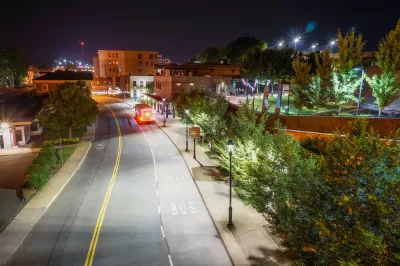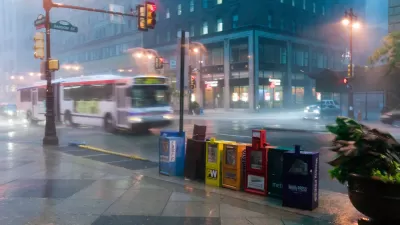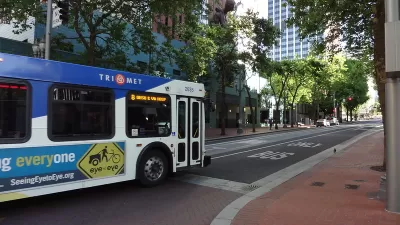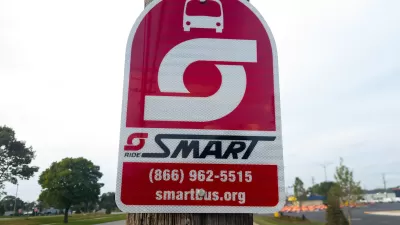Federal stimulus spending will enable the Charlottesville Area Transit to operate without fares for three years. The agency is also considering a plan to make the fare-free service permanent.

"Charlottesville Area Transit is planning not to charge for rides during the next three years," reports Katherine Knott.
Charlottesville Area Transit (CAT) Director Garland Williams last week informed the Regional Transit Partnership of the fare-free program, crediting funding from the CARES Act, approved in March 2020, and the more recent American Rescue Plan, approved in March 2021.
CAT has operating fare-free throughout the pandemic, according to Knott as a way to limit physical contact between drivers and riders. In addition to the three-year fare-free program, Williams also announced that CAT is studying making the transit system fare free permanently.
An article from earlier in March by Allison Wrabel also reports that CAT is working on a plan to restore service to pre-pandemic levels while restructuring bus service on a high frequency grid. That proposal includes an could potentially yield an increase in service hours, new weekend service, and improved frequencies and heavily used routes.
FULL STORY: CAT planning to stay fare-free for three years

Trump Administration Could Effectively End Housing Voucher Program
Federal officials are eyeing major cuts to the Section 8 program that helps millions of low-income households pay rent.

Planetizen Federal Action Tracker
A weekly monitor of how Trump’s orders and actions are impacting planners and planning in America.

Ken Jennings Launches Transit Web Series
The Jeopardy champ wants you to ride public transit.

California Invests Additional $5M in Electric School Buses
The state wants to electrify all of its school bus fleets by 2035.

Austin Launches $2M Homelessness Prevention Fund
A new grant program from the city’s Homeless Strategy Office will fund rental assistance and supportive services.

Alabama School Forestry Initiative Brings Trees to Schoolyards
Trees can improve physical and mental health for students and commnity members.
Urban Design for Planners 1: Software Tools
This six-course series explores essential urban design concepts using open source software and equips planners with the tools they need to participate fully in the urban design process.
Planning for Universal Design
Learn the tools for implementing Universal Design in planning regulations.
Ada County Highway District
Clanton & Associates, Inc.
Jessamine County Fiscal Court
Institute for Housing and Urban Development Studies (IHS)
City of Grandview
Harvard GSD Executive Education
Toledo-Lucas County Plan Commissions
Salt Lake City
NYU Wagner Graduate School of Public Service





























